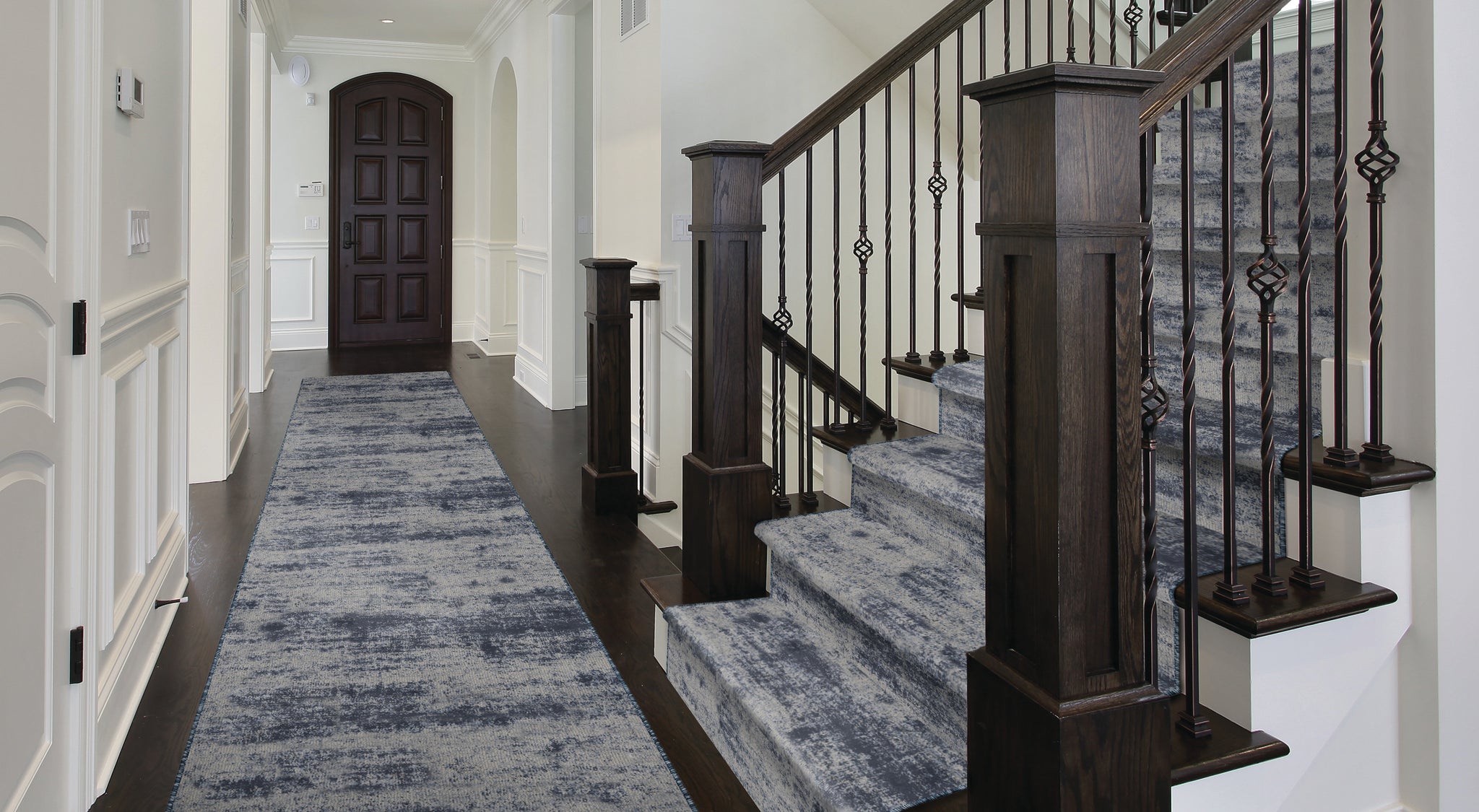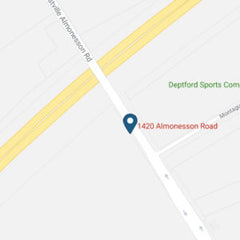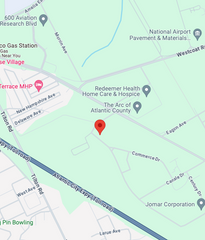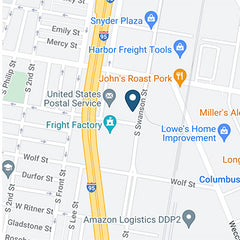Finished or unfinished, the basement is a bonus space with endless possibilities. And when it comes time to redo your basement, it's important to consider certain points to then help you choose from the best floor options—which we just so happen to have for you!
What to Keep in Mind When Choosing Basement Flooring
Homes are often described in "grade" levels and basements are considered below grade. Below grade simply means that the space is below ground level. This is important to remember as different materials are suited for this type of application for a variety of factors which we will outline for you below.
Moisture and Humidity
Moisture and humidity are the obvious concerns for a basement floor. Because moist and humid air is heavy, it tends to sink to the lowest part of your house—yes, your basement! There, warm, humid air can come in with relatively cool surfaces, such as the common concrete slab floor. Also, in particularly older homes, moisture can enter the basement through cracks in the foundation and exterior walls.
Level Floor Surfaces
Most of us don't give a whole lot of thought to the levelness of the concrete slab that's our basement floor. It's critical to inspect your existing concrete floor and make adjustments for any noticeable slopes or flaws that might damage the new floor finish or affect its aesthetic appeal. If the basement floor is level, you can easily patch minor cracks with an elastomeric sealant for concrete.
Ceiling Height
If your basement is like most, the air ducts for your upper levels are accommodated in your basement ceiling. You will need to consider the thickness of the flooring that you're adding. Because even just a couple of inches can take your home out of ceiling height requirements for your location.
How Will You Use Your Basement?
This is the initial question to ask yourself. If you want to use your basement for a work area or a game room, you'll want flooring that's durable and easy to clean. This is also the time to do a little soul-searching about how much maintenance you're willing to do on your flooring. Perhaps you want basement flooring that could outlast your house. It's simply a matter of preference and budget. It's your house, your money and your workload—so do what feels right to you.
Basement Flooring Options
Tile

Eco Patina Wood Plank Tile in White Wash
Tile is among the most popular flooring for basements. It represents the best of many worlds. It qualifies as a finished surface, meaning it's not a raw surface, like concrete. Yet, it's a finished surface that's attractive on its own. It can also be installed directly on your concrete slab. Because tile on concrete can be cold, radiant heating can be sandwiched in between the concrete and the tile to warm the tile surface.
Pros:
- Tile is durable. It can withstand the everyday wear and tear that comes with any busy household.
- Also, because of its durability, it's surface also prevents liquids and moisture from getting through.
- Besides those helpful advantages, there are so many beautiful colors, styles and patterns—even ones that look like actual wood and stone!
Cons:
- Tile flooring is usually cold underfoot, as your basement concrete slab can get very cold given that it's underground. But, like we mentioned before, radiant heating will help with that.
- And although tile is very durable, it's not 100% damage-proof. So, if a tile gets damaged badly and needs to be replaced, that can be a difficult process.
Vinyl

COREtec Everyday Chestnut Vinyl Plank in Newton
There are a few types of vinyl flooring to choose from (vinyl planks, sheets and tiles), but the good news is, the most suitable vinyl flooring for a basement is any one of those! Vinyl flooring in general won't be damaged by normal amounts of water on its surface, and it shouldn't be damaged by the occasional dampness on the concrete slab below. For more information about vinyl flooring, check out our other blog here.
Pros:
- This floating floor type can be put down easily without the need for messy adhesives. Besides being waterproof, it's also warmer to the touch, compared to tile or regular concrete—and it's also available in many attractive wood, stone or color pattern styles to match any interior décor!
Cons:
- Even though any type of vinyl flooring is good for the basement, they each are installed differently, making some not as DIY friendly as others. For instance, with sheet vinyl, there needs to be certain prep and cleaning done to your subfloor to make sure it's evenly laid down.
- It also needs to be cut the right size of your space to fit correctly. So, with that type, professional installation would be worth spending some extra bucks on.
With the more DIY friendly ones, (vinyl plank and tile) they are considered seamed floor coverings, which means, it's possible for water to leak through in the event of basement flooding.
Laminate
The use of laminate flooring in homes, and particularly in basements, has become very popular in recent years as it's become more attractive than ever before. It's extremely versatile and comes in a wide variety of designs that look like real hardwood, stone and other stylish designs that you might enjoy!
Pros:
- Besides its upscale looks (that are less expensive than the real materials), its layers make it great. First, it has a base layer of material such as plywood, which is followed by a layer of heat, moisture and shock resistant material.
- It's also fairly easy to replace any damaged individual sections, rather than replacing the entire basement floor.
Cons:
- While laminate can be installed and last a long time in spaces like kitchens and powder rooms, they're not known to tolerate large standing pools of water. In those situations, like during a flood, the water will seep into the seams between the boards, causing the laminate to swell.
Engineered Hardwood

Engineered hardwood gives you the warmth and beauty of real wood with the stability of laminate flooring. Unlike solid hardwood, engineered is dimensionally stable, thanks to the cross-hatched plywood base below the real wood veneer that helps maintain its shape when exposed to limited amounts of moisture.
Pros:
- As we just mentioned, it holds up to mild moisture which of course happens in a basement with changing temperatures of each season.
- It also has excellent sound absorption, which just adds another reason to why it's a great basement floor option.
Cons:
- Even though it's not as expensive as solid hardwood, it's still one of the more expensive flooring options.
- It must be installed on some type subfloor—not just the concrete slab. And because of this, it's then difficult to take up in the event of water damage, since it's nailed or stapled to that subfloor.
Carpet

Mosaic Family Friendly Carpet in Oak Ridge
Carpet can be a difficult flooring choice when it comes to basements because of its porous nature. However, it's still an option for certain reasons.
Pros:
- With the exception of extreme circumstances like flooding, basements generally have less moisture than your average bathroom. So, with the installation of a solid subfloor, wall-to-wall carpeting can be made to work in basements.
- It's one of the warmest (and softest) basement flooring options without the installation of radiant heating. And it's a great option if you have small children who play on the floor.
Cons:
- Though carpet can dry, it often takes industrial-quality equipment or professional services to get the job done immediately before mold develops.
- However, there is one alternative to wall-to-wall carpeting—carpet tiles. One big advantage of carpet tiles is that they are much easier to remove and replace than wall-to-wall carpeting.
- Also, there's a wide variety of styles, designs and patterns that you can mix and match—making them so versatile to with any home décor aesthetic you're trying to achieve!
Now that we've broken down all the considerations to keep in mind and all types to choose from, it's safe to say that almost any kind is a good flooring option for your basement. To see them in person, stop by one of our locations to begin your basement flooring process!




















